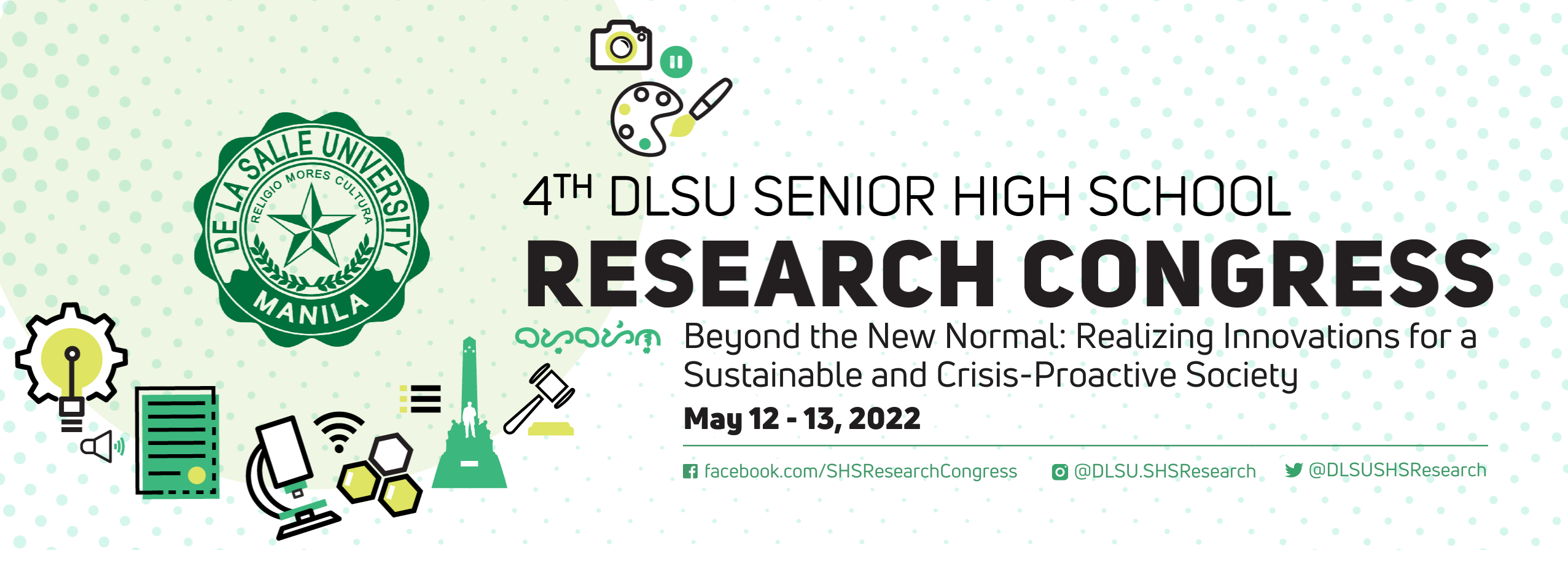The Influence of Tweets on the Voting Preference of Grade 12 Newly Registered Voters
Document Types
Paper Presentation
Research Theme (for Paper Presentation and Poster Presentation submissions only)
Media and Philippine Studies (MPS)
Research Advisor (Last Name, First Name, Middle Initial)
Ria Francis A. Robles
Start Date
13-5-2022 8:00 AM
End Date
13-5-2022 10:00 AM
Abstract/Executive Summary
Twitter has become highly ubiquitous and has been identified as the leading way to engage voters as they offer users discussion, participate in the political field, and investigate its influence on politics. The study proposed to understand the influence of tweets under the trending topic “#Halalan2022.” This study aimed to seek the influence and role of Tweets on the voting preference of the respondents. The study employed descriptive-qualitative research. A sample of 12 newly registered voters from grade 12 online-based learners of Saint Louis University Laboratory High School-Senior High, Baguio City, were chosen for this study. An open-ended survey was used for data collection and was analyzed using thematic analysis. There are six main themes: individuality, eligibility of presidential candidates, and the moral and ethical standards of newly registered voters. The influence of tweets was impactful, but there were negative responses due to firm political stands yet tweets were regarded as a deciding factor. Tweets are impactful in providing information and knowledge about the candidates’ backgrounds and platforms. However, it only becomes influential if it is factual and reliable, compatible with their political stand and chosen candidate. Tweets then serve as a deciding factor in shaping the voting preference of newly registered voters because it informs about the candidates and fortifies their political stand.
Keywords
voting preference; influence; hashtag; 10 trending tweets; #Halalan2022
The Influence of Tweets on the Voting Preference of Grade 12 Newly Registered Voters
Twitter has become highly ubiquitous and has been identified as the leading way to engage voters as they offer users discussion, participate in the political field, and investigate its influence on politics. The study proposed to understand the influence of tweets under the trending topic “#Halalan2022.” This study aimed to seek the influence and role of Tweets on the voting preference of the respondents. The study employed descriptive-qualitative research. A sample of 12 newly registered voters from grade 12 online-based learners of Saint Louis University Laboratory High School-Senior High, Baguio City, were chosen for this study. An open-ended survey was used for data collection and was analyzed using thematic analysis. There are six main themes: individuality, eligibility of presidential candidates, and the moral and ethical standards of newly registered voters. The influence of tweets was impactful, but there were negative responses due to firm political stands yet tweets were regarded as a deciding factor. Tweets are impactful in providing information and knowledge about the candidates’ backgrounds and platforms. However, it only becomes influential if it is factual and reliable, compatible with their political stand and chosen candidate. Tweets then serve as a deciding factor in shaping the voting preference of newly registered voters because it informs about the candidates and fortifies their political stand.


